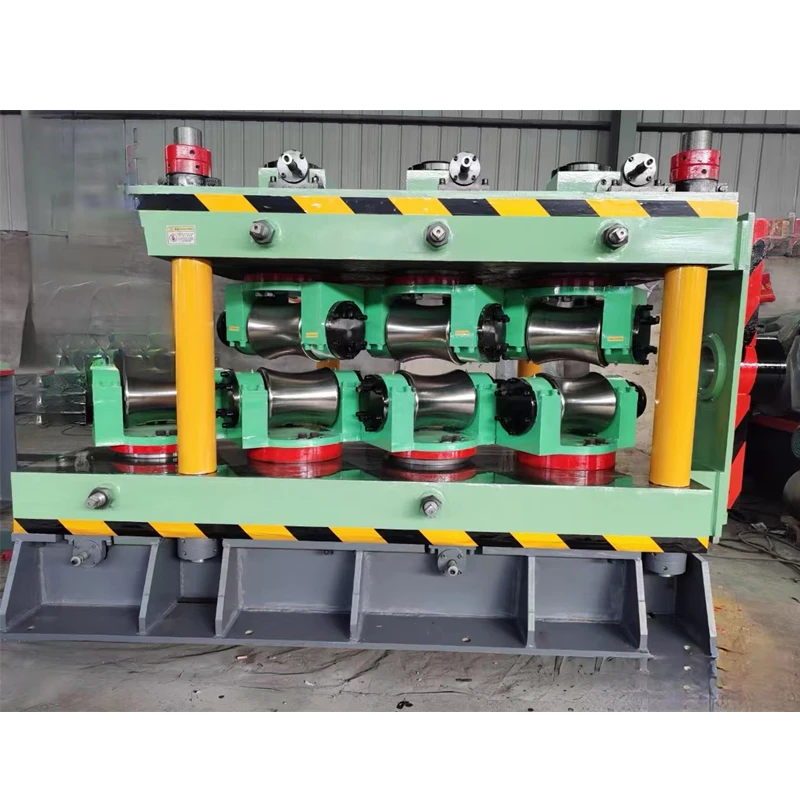Equipment for Manufacturing Galvanized Pipes Efficiently and Reliably
The Evolution and Importance of Galvanized Pipe Making Machines
In the ever-evolving landscape of industrial manufacturing, the production of galvanized pipes plays a pivotal role in various sectors, ranging from construction and plumbing to agriculture and automotive industries. Galvanized pipes, which are coated with a layer of zinc to prevent rust and corrosion, ensure durability and longevity in harsh environments. The machines that are used in the making of these pipes have undergone significant transformations over the years, enhancing efficiency and productivity.
Understanding Galvanized Pipe Making Machines
Galvanized pipe making machines are specialized equipment designed to produce pipes with a galvanized finish. The process typically involves several key stages steel coil feeding, forming, welding, and galvanizing. Initially, a steel coil is fed into the machine, where it is shaped into a pipe through a series of rollers. The edges are then welded together to form a continuous pipe. After welding, the pipe undergoes a galvanizing process, where it is submerged in molten zinc, creating a protective coating that safeguards against corrosion.
Technological Advancements
Over the past few decades, technological advancements have significantly improved the efficiency and capabilities of galvanized pipe making machines. Automation has become a cornerstone of modern manufacturing, with many machines now equipped with computer numerical control (CNC) systems. This allows for precise measurements and cuts, reducing waste and enhancing product quality. Additionally, automated quality control systems help to monitor the production process in real-time, ensuring that any defects are identified and rectified immediately.
Another significant advancement is the use of innovative materials and engineering techniques. Modern galvanized pipe making machines utilize high-strength alloys and more efficient designs, resulting in lighter yet stronger machines that are capable of producing pipes at a quicker rate. These machines are also designed to be energy-efficient, aligning with global sustainability goals in manufacturing.
The Benefits of Galvanized Pipes
galvanized pipe making machine

The advantages of using galvanized pipes are manifold, contributing to their widespread adoption in various industries. Firstly, the zinc coating provides excellent protection against rust and corrosion, making these pipes ideal for outdoor and underground applications. The durability of galvanized pipes also translates into lower maintenance costs over time, an essential factor for businesses looking to cut down on operational expenses.
Furthermore, galvanized pipes are versatile and can be used for transporting water, gas, and other liquids. Their resilience under fluctuating temperatures and pressures makes them a preferred choice for a wide range of applications. In addition to functional benefits, galvanized pipes also offer aesthetic value. Their smooth finish is not only appealing but also facilitates easy cleaning, making them suitable for public and commercial spaces.
The Market Demand and Future Trends
As the global infrastructure continues to grow, the demand for galvanized pipes is expected to increase correspondingly. Countries investing in urbanization, water supply systems, and agricultural irrigation will drive the need for efficient and reliable piping solutions. Consequently, the market for galvanized pipe making machines is poised for growth, with manufacturers constantly seeking to innovate and improve upon existing technologies.
Looking ahead, the industry is likely to experience further advancements in automation, AI integration, and predictive maintenance technologies. These innovations will not only enhance production capabilities but will also optimize resource utilization, contributing to more sustainable manufacturing practices.
Conclusion
In summary, galvanized pipe making machines are crucial players in the modern manufacturing landscape, enabling the production of durable, corrosion-resistant pipes that meet the demands of various industries. As technology continues to advance, these machines will further evolve, enhancing their efficiency, sustainability, and overall performance. For businesses and industries relying on galvanized pipes, investing in state-of-the-art manufacturing equipment will be essential in maintaining competitiveness and meeting the growing market demands. The future of galvanized pipe production, therefore, not only promises advancements in technology but also a commitment to quality and sustainability that will benefit industries worldwide.
-
High Frequency Straight Seam Welded Pipe Production Line-BzZhou Xinghua Machinery Equipment Manufacturing Co., LTD.|line pipe steel&welded gas pipeNewsJul.30,2025
-
High Frequency Straight Seam Welded Pipe Production Line-BzZhou Xinghua Machinery Equipment Manufacturing Co., LTD.|High Precision&Automated SolutionsNewsJul.30,2025
-
High Frequency Straight Seam Welded Pipe Production Line - BzZhou Xinghua Machinery Equipment Manufacturing Co., Ltd.NewsJul.30,2025
-
High Frequency Straight Seam Welded Pipe Production Line-BzZhou Xinghua Machinery Equipment Manufacturing Co., LTD.|Precision Welding, High EfficiencyNewsJul.30,2025
-
High Frequency Straight Seam Welded Pipe Production Line|BzZhou Xinghua|Precision Welding&EfficiencyNewsJul.30,2025
-
High Frequency Straight Seam Welded Pipe Production Line - BzZhou Xinghua|Precision Engineering&EfficiencyNewsJul.30,2025


